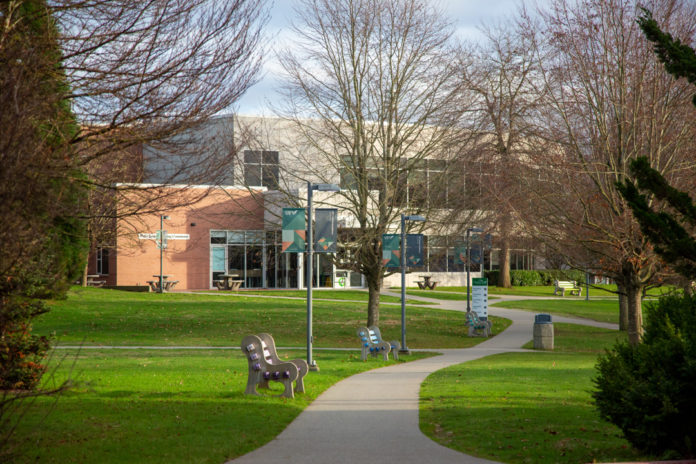Senate is the academic governing body of UFV, with the university president and vice-chancellor Joanne MacLean as the chair. They are responsible for making decisions on everything academic, including: approving new courses and programs, approving changes to programs, and setting entrance requirements and the academic calendar. The Board of Governors, which looks at the business side of the university, is advised by Senate on matters of mutual interest.
All at the university are welcome to attend Senate’s public meetings, held once a month. Senate makes decisions that impact the daily lives of both students and faculty. This article will recap the main agenda items of the hybrid Senate meeting on Friday, April 22, 2022.
A presentation was made by David Johnston, university registrar, about sessional date planning along with a discussion about how to support academic continuity in the face of significant disruptions in academic programming. It was proposed that instead of canceling class in the face of disruptions, classes could move to an online platform, a method that has proved successful during COVID-19. During the discussion, Sylvie Murray, dean of the College of Arts, noted that this could pose a problem during disruptions that involve power shortages, such as flooding.
James Mandigo, provost and VP academic, suggested that Senate think about not having the restriction of time, but more of a competency-based approach to learning, whereas David Harper, from the kinesiology department, brought up that students coming straight from high school to university during the pandemic are struggling with basic study skills and academic disciplines. Harper said the best thing to do was look for ways to improve critical reasoning skills of students.
The Senate approved revisions to Policy #94: Prior Learning Assessment and Recognition. This policy creates guidelines for the university to access and recognize prior learning done by students in other backgrounds. This policy covers more than just transferring credits from one formal institution to another, and also recognizes informal learning done by students through the forms of work experience, independent studies, community service, and even lived experience. This learning will be assessed and recognized by accreditation through methods such as oral and written exams, interviews, or portfolio assessment; there must be demonstrated learning that reflects the achievements made in an equivalent subject, course, or program.
During the President’s Report, Joanne MacLean announced that they had recently been advised by Anne Kang, the minister of advanced education, that the ministry had approved for all B.C. post-secondary institutions to assess domestic fees for students from Ukraine who wish to study in B.C. They will be reported as regular full-time-equivalent students by the institutions to the government. UFV is planning to offer any students from Ukraine the opportunity to study at UFV at domestic tuition levels, consistent with other post-secondary institutions across the province.
Andrea Sadowski is working towards her BA in Global Development Studies, with a minor in anthropology and Mennonite studies. When she's not sitting in front of her computer, Andrea enjoys climbing mountains, sleeping outside, cooking delicious plant-based food, talking to animals, and dismantling the patriarchy.


